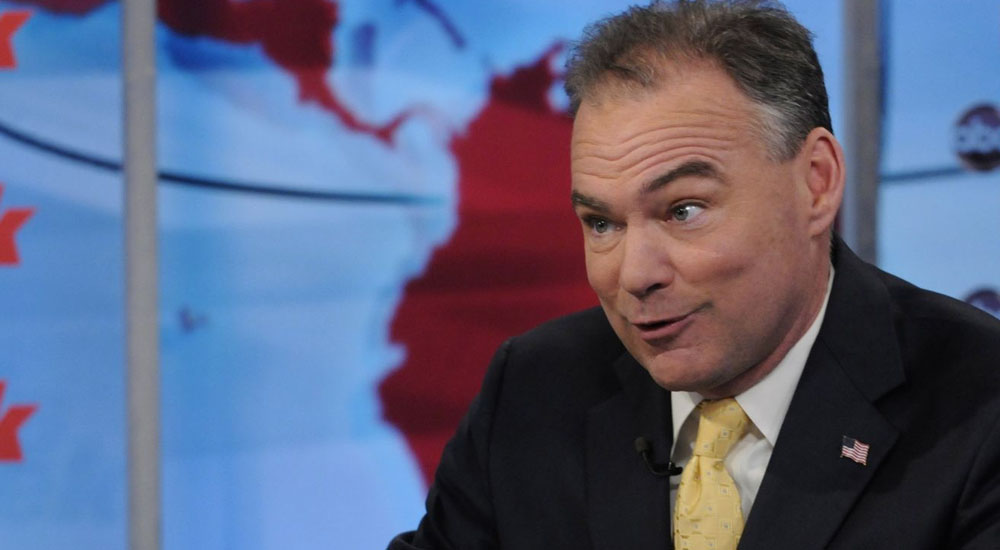When Jesuit-Educated Men Speak, Eyebrows Are Raised
Today’s conversation on 94.7 FM Charlottesville on the Coy Barefoot Show, my fellow elocutor and contributor Rick Sincere put his chips on Governor Mike Pence to win the debate. As a former radio talk show host, Pence should have the upper hand on His Excellency.
On the other hand, I put the sound money on God’s Marines.
Let’s count the ways, shall we?
Set aside all of the other considerations: lawyer, defense lawyer at that, trained debater, skilled politician. Kaine is Jesuit-trained and Jesuit-educated… and that matters a lot, because what you are going to hear during tomorrow’s debate is going to have a lot of what we call case-based reasoning — casuistry — in order to justify seeming at-odds positions.
Now I know what you’re thinking. “Aren’t you digging really deep into the Catholic bag there, SVK?” The answer is: probably not deep enough.
To wit, Pope Francis — Jesuit-trained — is a master of detecting the tactic — give the link a CTRL+F. There are books written about casuistry employed both as a rhetorical tool (by the Jesuits), abused as a rhetorical tool (Pascal was no fan), and revived as a means of deriving a sort of ethical calculus. Go check out the Theologiae Moralis and see what that is about.
Casuistry is a powerful rhetorical tool in debate, not to mention in ethics and epistemology (big word for the science and psychology of knowledge). Short version: if A = B, and B = C, then A = C. Not so much a problem until A1, A2, A3… = B1, B2, B3… and therefore A1 = B3 = C.
See the problem? A1 might not be equivalent to B3, even though it mimics the form of A = B. When folks rush to judgment, or when to seemingly opposite things are forced to fit together while something in the back of your head tells you that its not quite right? Watch out — casuistry at play.
Here’s where it gets really fun. When you are predisposed to believe it… casuistry can be extremely persuasive. Examples?
- I am personally pro-life (A1) but as a Catholic we believe in freedom of religion (C), and therefore I cannot force people to believe what I believe (B3).
- I am personally opposed to the death penalty (A1), but because of the Kennedy Doctrine (C) I must uphold the law of the land (B3).
- I am personally committed to the defense of family (A1), but because other people disagree with me (C) I must be open to other concepts of family (B3).
Note how these sentences change. I personally believe this (A1), but because I can’t force people to believe what I believe (B3), people are free to do what they want (C). For example:
- Direct abortion (A1) even though tragic (B3) can be a moral choice (C).
See how scary smooth that is?
…and it will come in threes. Truth, qualifier, cause… or as you will see: truth, cause, qualifier.
The abuse of casuistry (or truth) will come in the cause, not the qualification. But the key thing to watch will always be the context and the proportional reasoning behind the statement. To wit:
If the resolution of moral problems depends more on the practical understanding of concrete cases than it does on the theoretical graps of abstract connections, why then has a geometrical model, the point of which is to illustrate the formal merits of theoretical arguments, had such an appeal in the essentially practical field of ethics? If moral arguments are practical, so that moral wisdom is phronensis, not episteme, how can people still think of ethical theories as the foundations of some “moral geometry”?
The answer to those questions is that, in many circumstances, the appeal to a geometrical model of argument itself has a powerful rhetorical effect. (emphasis added) When particular cases call for reemphasizing strict principles and for holding pretended “exceptions” at arm’s length, this model underlines the moral considerations concerned and helps to discredit all counterarguments in favor of relaxing those principles. So the deductive model itself can be a “rhetorical rope” in the service of the rigorist cause.
That’s from The Abuse of Casuistry — it is what Jesuits talk about.
…it’s also why Kaine is going to mop the floor with Pence. That is, unless you — dear reader — can detect the moments when such rhetorical ploys are played.


